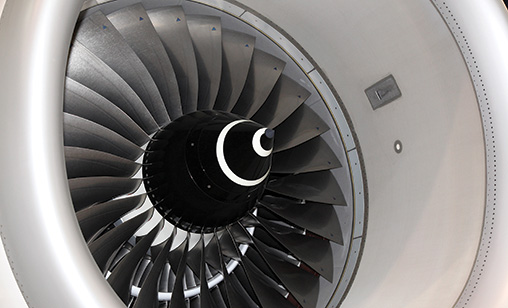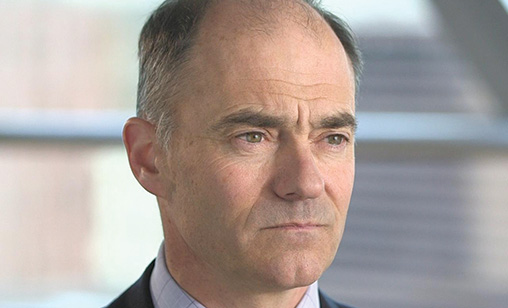News Backgrounder
Asia-Pacific rocked by Rolls-Royce bribery scandal
February 1st 2017
The news last month that global engine manufacturer, Rolls-Royce had admitted to bribing clients to secure orders, allegedly in Thailand, India, Indonesia, Malaysia and China among other countries worldwide, has sent shock waves through the region’s airline industry. Read More »
In Bangkok, Thai Airways International (THAI) immediately set up two task forces to investigate the allegations. In Indonesia, the country’s anti-corruption agency, the Corruption Eradication Commission (KPK) announced it was investigating the matter and named former Garuda Indonesia president-CEO, Emirsyah Satar, as a suspect in a bribery case. The KPK said in a statement he was suspected of accepting bribes related to the purchase of planes and engines from Airbus and Rolls-Royce.
 |
Former banker Satar, who is highly regarded in the industry, headed Garuda from 2005 to 2014. He resigned from Garuda because heads of government controlled companies only are allowed to serve two five-year terms in any one position. He is now chairman of Indonesian conglomerate Lippo Group’s e-commerce platform, MatahariMall.com.
Satar has vehemently denied any wrongdoing, but said the KPK had the authority to name him as a suspect and that he would respect the legal process. “As far as I know, when I was the CEO of PT Garuda Indonesia, I had never done corrupt activities and I did not receive anything that was related to my position,” he said.
THAI quickly launched full scale investigations into past jet engine purchases. The airline’s president, Charamporn Jotikasthira, who took over in December 2014, said one task force would examine engine and maintenance procurement between 1991 and 2005 and would take appropriate action on the findings.
A second task force is investigating current procedures for engine procurement and maintenance to ensure they are sound and without any loopholes.
In a bombshell disclosure in January, Britain’s Serious Fraud Office (SFO) settled with Rolls-Royce after the company admitted to engaging in 12 counts of corruption or failure to prevent bribery in seven countries. Among them were five Asian countries: Thailand, Indonesia, India, China and Malaysia. Russia and Nigeria also were named in the final findings.
Rolls-Royce apologized after it was found to have paid bribes, including a luxury car and millions of dollars in cash, to middlemen to secure orders. The Derby-based company made the admissions in the High Court in London last month after it was revealed the company had agreed to pay $828 million in penalties to settle the long-running investigation.
In a statement read out in court, Rolls-Royce said it “apologized unreservedly for the conduct which has been uncovered”. The settlement was reached with investigators from three countries - the UK, U.S. and Brazil - who launched investigations five years ago into allegations the firm had hired middlemen to pay bribes to win contracts.
 |
| 'The behaviour uncovered in the course of the Serious Fraud Office investigations and other authorities is completely unacceptable and we apologize unreservedly for it. This was unworthy of everything which Rolls-Royce stands for, and that our people, customers, investors and partners rightly expect from us' |
| Warren East Rolls-Royce chief executive |
Rolls-Royce chief executive, Warren East, said the behaviour uncovered in the course of the SFO investigations and other authorities “is completely unacceptable and we apologize unreservedly for it. This was unworthy of everything which Rolls-Royce stands for, and that our people, customers, investors and partners rightly expect from us”.
The British court heard that:
• In Thailand, the firm paid more than $36 million between 1991 and 2005 to agents to help it secure three separate contracts to supply Trent aero engines to Thai Airways International.
• In Indonesia, Rolls-Royce gave $2.25 million and a Rolls-Royce Silver Spirit car to an individual in exchange for a “favour to Rolls-Royce on a contract” for Trent aero engines to be provided to Garuda Indonesia. Separately, Rolls-Royce paid a representative from a rival bidder to deliberately submit an uncompetitive bid on a contract Rolls-Royce successfully secured.
• In India, where the use of agents to secure defence contracts is prohibited, Rolls-Royce disguised its use of middlemen as “general consulting services”. The company also admitted paying to retrieve a leaked list of intermediaries after they were obtained by the Indian tax authorities.
• In China, Rolls-Royce failed to prevent bribery in relation to the extension of a £5 million ($6.2 million) cash credit to China Eastern Airlines in exchange for the purchase of engines for aircraft. Some of the funds paid were intended to be used for employees of CEA to attend a two-week MBA course at Columbia University, including what the court described as “four-star accommodation and lavish extracurricular activities”.
In Bangkok. THAI announced one investigation would be headed by Pichait Riengvattanasuk, who is vice president of the carrier’s Risk Management Department. There also would be a Corruption Investigation by a Special Task Force headed by an advisor in the Office of the President, Niruj Maneepun, to investigate Rolls-Royce allegations about THAI engine and maintenance procurement that would “take appropriate company or legal actions on the findings”.
A Fraud Prevention Integrity Pact between THAI and engine procurement and maintenance companies is to be developed to ensure there is no bribery among THAI staff.
Thailand’s Transport Minister, Arkhom Termpittayapaisith, said the inquiries had been given 30 days to wrap up the bribery probe, which meant it would have to come up with results before the end of this month.
He said the panel must determine if THAI’s acquisition process is transparent, how the current acquisition process differed from the previous process and who was involved the bribery that Rolls-Royce has admitted in the courts.
If the inquiry implicates any THAI executives or staff they must be prosecuted without exceptions, he said.
Garuda Indonesia issued a statement in response to the KPK’s announcement which said the case was disconnected from the airline. “The management of national airline Garuda Indonesia wants to convey that the (alleged corruption) case has no relations with corporate activities, but is more an individual action,” said the carrier’s corporate communication vice president, Benny S. Butarbutar.
He said that as a public company, Garuda had mechanisms in all of its business activities, from the tight implementation of a good corporate governance system to transparency of information. “The management of Garuda Indonesia will fully leave the complete investigation of the case to the KPK and will cooperate with the commission’s investigators,” he added.
A settlement between Rolls-Royce and the SFO on the allegations – called a deferred prosecution agreement – allowed the engine manufacturer to avoid prosecution in the U.S., the UK and Brazil although individual executives may be charged.
The SFO settlement required Rolls-Royce to admit wrongdoing, pay the fine and submit to other measures to monitor its conduct for a specific period. If it adheres to the terms of the agreement, it will not be prosecuted at the end of the agreed period.
Rolls-Royce said it would pay $613 million to the SFO, $169 million in penalties to the U.S. Department of Justice and $25 million to the Brazilian authorities. During the long-running investigation, more than 30 million documents relating to middlemen were examined by 70 investigators and more than 200 interviews of present and former Rolls-Royce employees were carried out. Arrests and searches were made in the UK and overseas.
Joint head of bribery and corruption at the SFO, Ben Morgan, told the Financial Times that a network of corrupt middlemen that operated on behalf of Rolls-Royce and other companies was put together “not just in aerospace or energy sectors, but in other cases”.
“You start to look at how the web reaches out into other companies. We don’t think we have caught the one bad apple here at all. Other companies should be concerned. Boards have a decision to make – do they continue to hide bad conduct or, like Rolls-Royce did, do they have the integrity to confront it,” Morgan said.